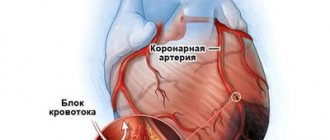Sometimes children in class have no time to study at all, and on the street they have no time to go for a walk. They may look wild, tense, dissatisfied, extremely slow, unable to put together two words in simple situations. Additional flavor to the painting entitled “Failure in Bloom” can be added by bitten nails, scratched hands and other signs of releasing accumulated tension. Sometimes even an intelligent parent, after a certain number of well-conducted conversations, loses his nerve and bursts out: “What kind of person are you? How can? All people are like people, and you...” But we want to warn you against unfair reproaches. The children are in a difficult situation! 50% of people suffer from neuroses at different periods of their lives, and often these neuroses debut in adolescence.
This is how children suffering from neuroses feel:
- Alina, 15 years old (social phobia):
“Going to school is torture for me. In class, I feel so tense that my hands are shaking and my neck is going numb. I'm afraid that they'll ask me and the whole class will see that I'm some kind of strange, mentally ill person. I'm afraid that my head will start to shake from tension, that I will lose control of myself. I also blush, sweat, I have to dodge all the time so that no one notices my red, wet hands. I hate myself in such states! When I come home from school, I cry all the time.” - Marina, 14 years old (panic attacks):
“I’m afraid to ride the subway, I’m afraid to sit in class, I’m afraid of situations that are difficult to get out of immediately. My heart starts beating fast, my hands go numb, I’m out of breath. I am afraid that something will happen to me, that I will fall, lose consciousness, and also look strange. I'm afraid of losing control of myself." - Pavel, 14 years old (obsessive-compulsive disorder, OCD):
“I hate my life, I hate doing homework. I'm afraid that I'll miss something important while doing homework or going about my day, so I have to repeat information over and over again in my head until I feel like I've got it all figured out. It takes a lot of time, I get tired of it and annoyed with myself. When I open a textbook, I have to be sure that I haven't wrinkled the page, otherwise I'll have to iron it a few times afterward. Sometimes I don’t notice how I’m tearing out my hair with all this. And that's not it…". - Larisa, 13 years old (social phobia):
“I’m ashamed, and I don’t know what can help me. I am afraid of situations from which there is no quick way out. In class, on public transport, I start to want to go to the toilet, I’m afraid that I won’t be able to stand it, I’ll lose control and everything will happen to me in front of everyone. I'm tense all the time, I sweat from tension, it's uncomfortable for me to walk with circles under my arms. I put napkins there so that they are not noticeable. I sit in class and count down the minutes. The closer you get to the end, the easier it gets. I go to the toilet many times before school to hope that I won't feel like it at school, but it doesn't help. My parents, seeing this, get annoyed with me. I feel abnormal. I can’t tell anyone about this.”
Prerequisites for the emergence of psycho-emotional stress and the formation of neuroses in adolescents in modern society:
- Adolescence is characterized by powerful hormonal changes, which in the psychological sphere manifest themselves in the form of increased anxiety, irritability or a tendency to a sad mood, and in the physical sphere - symptoms of vegetative-vascular dystonia (VSD).
- During adolescence, a set of personal values and goals is formed that are intended to become a support in future life. But, unfortunately, in modern society the formation of personality is forced to occur in conditions of contradiction, duality and inconsistency of the presented value ideology. A humorous example of this: “Of course you should have your own opinion, and now I’ll tell you it!” This leads to internal and external conflicts and, accordingly, to emotional disorders and often to symptoms of VSD.
- Modern society is characterized by a high level of intolerance. There is a large percentage of people with anxiety, irritability, depression due to imbalance, unsettled life or untreated emotional illnesses, which leads to a state of intolerance. Adolescents, accordingly, are easily rewarded by adults with derogatory definitions, which contributes to the emergence of interpersonal conflicts and the formation of vulnerable self-esteem in children. In addition, in such an atmosphere, looking at dissatisfied and anxious adults, teenagers read the underlying information that the world is dangerous. And again the result is emotional disorders and symptoms of VSD.
- Children are spending more and more time on gadgets, walking and socializing less. This, on the one hand, is a prerequisite for VSD (emotions are not realized in sufficient motor activity, an imbalance of the autonomic nervous system occurs), and on the other hand, it leads to insufficient communication practice, as a result of which ordinary communication with peers in real life begins to cause anxiety.
Three common ways of developing neuroses in adolescents against the background of psycho-emotional stress and symptoms of VSD:
- Psycho-emotional stress can manifest itself as symptoms of VSD - muscle tension, trembling in the body, dizziness, a lump in the throat, shortness of breath, sweating, frequent bowel movements, the urge to urinate and other symptoms. If against this background the child begins to fear for his health, then he will develop PANIC ATTACKS or HYPOCHONDRIC NEUROSIS. If a child begins to worry about how he looks, he will develop SOCIOPHOBIA.
- Living in conditions of chronic interpersonal or intrapersonal conflicts, for which adolescents have no solution, can lead to the fact that the psyche will find a way to calm down by performing actions that are understandable to it. This is called displaced activity: in a hopeless situation, a person may begin to perform an action that is understandable to him, but not related to the current situation. This is how obsessions and various rituals are formed, that is, OBSESSIVE-COMPULSIVE DISORDER or OCD.
- Exhaustion of the nervous system against the background of psycho-emotional stress is manifested by symptoms of VSD and irritable weakness, fatigue, headaches, and sleep disturbances. There is increased sensitivity to bright light and loud sounds. This is how NEURASTENIC NEUROSIS is formed.
- Influence the prerequisites for the formation of neurosis. It is important that the hygiene of the child’s life is maintained: that after stress the child has the opportunity to recover, that he sleeps and eats enough, that there is enough physical activity, that the time spent on gadgets is limited. It is important that a child grows up in a peaceful environment, at least in a family. It is important to be consistent in offering and demonstrating good values and to be tolerant. There is no escape, but it will be very helpful for parents to balance their lives and resolve their issues so that they can be happy with their lives. We hope that your child's health can be a worthy motivation to set aside time and other resources for yourself to resolve issues of your own mood.
- Contact a specialist to solve the neurosis that has arisen in the child. Here you can get help in the form of individual consultations, and we have also developed a group program especially for teenagers. This is how they speak about the help received at our center.
- Learn to live an active life correctly.
How to help a teenager?
In addition to neuroses, other disorders of the neurotic level can be observed in adolescence: other emotional disorders and adaptation disorders and decompensation of personal characteristics in the form of various psychopathic behavior.
Fears
If an ordinary child suddenly turns into a desperate coward, it means that he is clearly under stress. Parents should be alerted if a child closes doors everywhere, constantly checks whether the lock is locked, and turns on lights everywhere. He is already afraid not only of a dark room, but also of a picture on the wall, and noise on the stairs, and silence.
What to do? Actively involve your child in play, drawing - both of these activities are good for relaxing. With their help, try to understand, or quietly eavesdrop on the child’s conversations with toys.
Decreased academic performance
The fact that a child is in a poor psycho-emotional state is indicated by such signs as impaired memory functions, difficulties with imagination, poor concentration, loss of interest in everything that previously aroused curiosity.
What to do? Take an interest in the children’s school affairs every day. “What are the grades?”, ask about his feelings, mood, support him. Do not skimp on praise, notice even the most insignificant achievements of the child. If possible, help your child complete difficult tasks.
8. Fatigue
, difficulties with studying, which used to be easy. The child gets tired quickly after exercise, is absent-minded, forgetful, and restless.
What to do? Find out about childhood experiences and emotions. To help your child feel supported, make sure he knows that you are available any time he wants to talk to you about his problems. Appreciate your child in all situations and hug as often as possible.
Insulation
A state of psychological stress can manifest itself in a child in a desire for loneliness. He stops participating in the games of his peers and has difficulty maintaining discipline.
What to do? First you need to deal with the stressful situation; if the child does not currently have the resources to communicate, there is no need to insist. If he wants to, help your child make friends with one child first: go to the park or to the theater together. Children's communication trainings (for example, group sand therapy classes) are an excellent way to cope with this problem.
Treatment of psychogenic cough
The main treatment for psychogenic cough is psychotherapy. The technique is selected individually. An extremely important point in therapy will be the patient’s awareness of the nature of the disorder. A psychotherapist can use speech therapy, relaxation, hypnosis, breathing exercises and other techniques that have proven themselves.
General principles of therapy:
- create comfortable conditions to eliminate stress factors;
- normalize the daily routine, allocate enough time for daytime rest and sleep;
- include daily exercises, walks, breathing exercises in your schedule;
- limit caffeinated foods and drinks;
- follow the recommendations of the psychotherapist.
Reference! The doctor may decide to prescribe psychotropic medications. For children, distraction therapy techniques, chest wraps, and special breathing techniques with a button between the lips can be additionally used.
Aggressiveness
If you notice that your baby, who was previously so docile and friendly, suddenly began to be rude, answer sharply, throw toys and books at the wall, swing at others, know that these are signs of stress.
What to do? Aggression cannot be prohibited; it is better to try to translate it into other forms: learn to defend one’s rightness, analyze the situation together. Look for a constructive outlet for the child’s pent-up energy: active sports, outdoor games with other children, start a puppet fight.
4. Mood swings
The child is sometimes touchy for no reason, can easily cry over an insignificant reason, or, on the contrary, becomes too aggressive. Older children or depressed, depressive mood that lasts for days, weeks - all this should also alarm parents.
What to do? Have a heart-to-heart talk with your child and find out what is causing him concern. Teach him to understand and constructively express his emotions. Pay attention to even the smallest achievements. Monitor your child's daily routine, diet and sleep.
Health problems
Parents are often confused by inexplicable symptoms: vomiting, rash, fever, abdominal pain and other oddities - all this can happen due to nervousness if the child is very worried.
What to do? First, establish the psychological climate in the family, check whether the demands of family and school are not too different. They must be clear and consistent. Ideally, you should work with a child psychologist on the child’s self-esteem and be sure to check whether your son or daughter has personal time and space.
Psychogenic cough in adults
Psychogenic cough in adults is rather an exception and more often serves as a manifestation of hyperventilation syndrome. The treatment is long and complex. The cough is constant, dry, and quite loud. Attacks can last for months and even years.
When carrying out hormonal therapy, results are usually lacking, as well as when using other methods of drug treatment. A thorough diagnosis makes it possible to find out that there are no causative diseases, and then the correct diagnosis is made.
Reference! Diagnosing a psychogenic cough in an adult is quite problematic, because you need to detect a psychogenic disease. When studying the anamnesis, the clinical picture becomes more clear, as does the pathogenesis of the disorder. Hysterical and ataxic disorders are often detected, and these may also be somatosensory disorders.
Considering the fact that before the age of 18, the vocal tic goes away in almost everyone, the diagnosis of an adult who suspects this disorder should be more thorough. It is possible that cough is a sign of a still hidden disease, even if all the symptoms correspond to a psychogenic disorder.
Symptoms of psychogenic cough
Psychogenic cough is a neurotic disorder accompanied by paroxysmal cough without respiratory pathologies. The ICD-10 code is F45.33.
Psychogenic respiratory disorder is explained by patients as a feeling of lack of air. The symptoms of psychogenic cough are quite specific, which makes it possible to determine the type of disorder. Frequent and short breathing movements can alternate with long breaths, which entail a feeling of relief. This is followed by holding your breath again.
Reference! The frequency of respiratory movements has a wave-like character with a gradual increase.
Features of the manifestation of psychogenic cough:
- begins in children under 4 years of age, but most often occurs between 4 and 8 years of age;
- cough occurs only during the daytime, never bothers you at night;
- is dry, constant and intrusive in nature;
- there are no other symptoms of respiratory distress;
- a quick conversation helps eliminate cough;
- antitussives do not give any effect;
- intensifies during adolescence;
- Most often it goes away completely before the age of 18.
Habitual cough becomes a serious problem for children and adults. Frequent attacks interfere with social activities. Sometimes a person has to give up his activities. At the same time, at night, during sleep, the phenomenon does not bother me at all.
Usually, with such manifestations, treatment for bronchitis or bronchial asthma is prescribed. However, the result of therapy is completely absent, then additional diagnostics are carried out, during which it becomes clear that we are talking about a psychogenic cough.
The second name for the disorder is vocal tic. It appeared after recent research. This name is due to the fact that cough can be caused by contraction of the vocal cords, and this is a type of tic. But such a discovery does not solve the problem. The causes of tics are still poorly understood, let alone effective remedies.








